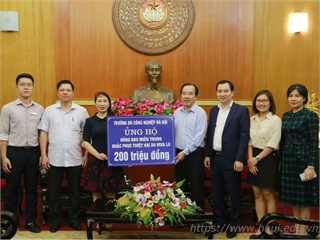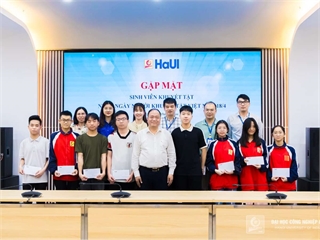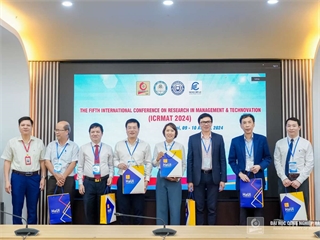Conference on Taxation and the Digital Economy
At the conference on “Taxation and the Digital Economy" held on August 28th, more than 90 experts, scholars, and lecturers from 17 universities in Hanoi and the northern region convened to discuss the challenges related to taxation in the field of e-commerce and electronic invoicing. From these discussions, several solutions were proposed to enhance tax efficiency in the context of the digital economy.
 The conference, organized by ACCA in collaboration with VTCA and Hanoi University of Industry, with the support of KPMG Vietnam, attracted a large number of participants.
The conference, organized by ACCA in collaboration with VTCA and Hanoi University of Industry, with the support of KPMG Vietnam, attracted a large number of participants.

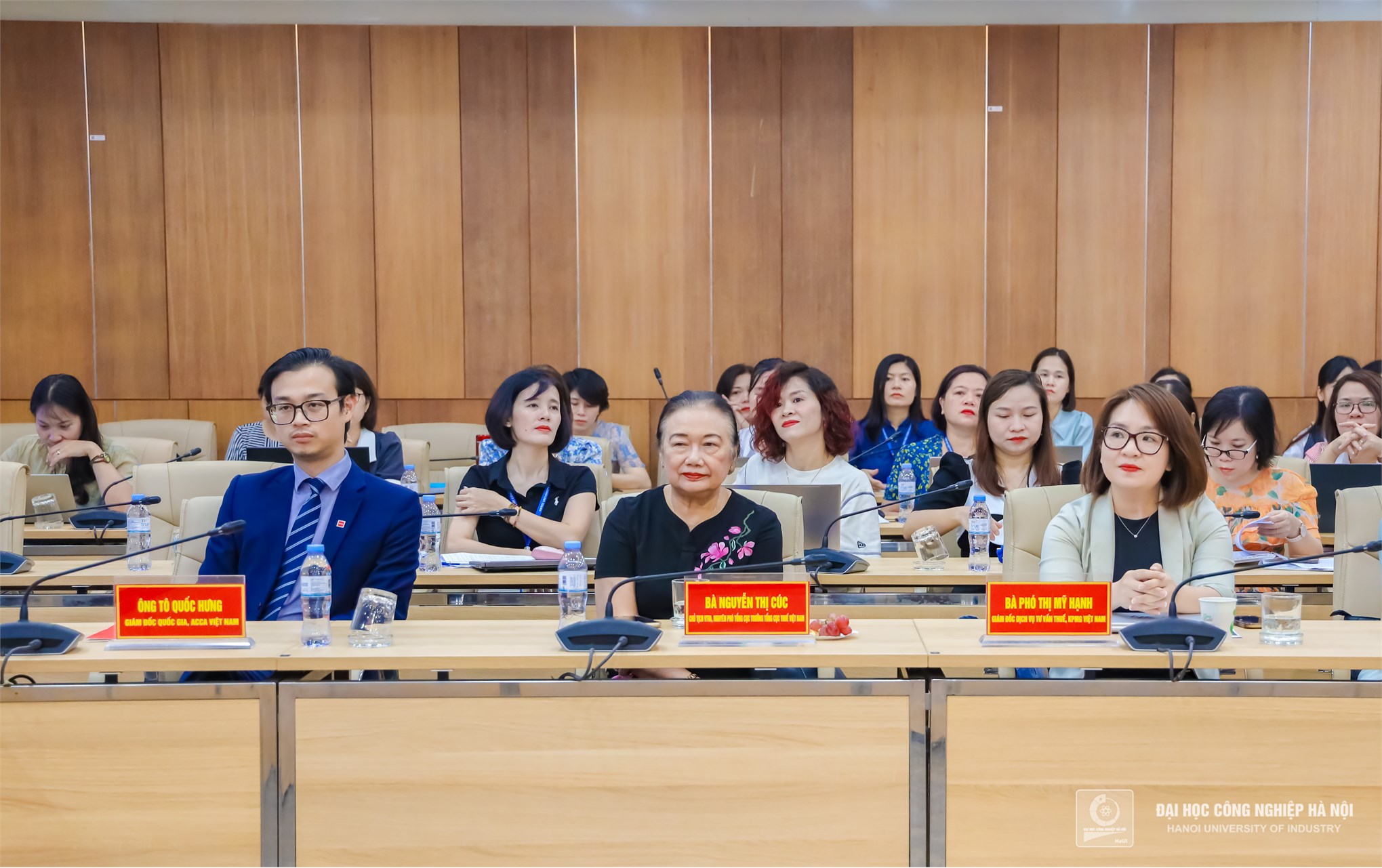
Overview of the conference
In the era of the Fourth Industrial Revolution, the digital economy plays an increasingly important role in driving global economic development. Emerging technologies such as artificial intelligence, blockchain, and e-commerce are fundamentally transforming how we conduct economic and social activities.

Assoc. Prof. Dr. Pham Van Dong, Vice Rector of Hanoi University of Industry delivered the opening speech at the conference
Assoc. Prof. Dr. Pham Van Dong shared that the rapid development of the digital economy presents significant challenges to the tax system. Issues such as determining the actual value of digital transactions, managing taxes for businesses, and ensuring tax fairness in the context of globalization require a deep and comprehensive understanding of tax practices within the digital economy.
Ms. Nguyen Thi Cuc, Chairwoman of Vietnam Tax Consultant Association (VTCA) and Former Deputy Director General of the General Department of Taxation, Ministry of Finance highlighted that the development of e-commerce is an inevitable trend in the Fourth Industrial Revolution. In Vietnam, the number of people engaging in online shopping has surged, with retail sales on e-commerce platforms experiencing exponential growth. The e-commerce market continues to expand with diverse online sales channels, fast delivery services linked to logistics facilities, and a wide array of electronic payment systems such as credit cards, debit cards, and e-wallets. However, the Vietnamese e-commerce market also faces challenges such as counterfeit goods, fraud, and data and bank account theft.

Ms. Nguyen Thi Cuc, Chairwoman of Vietnam Tax Consultant Association, Former Deputy Director General of the General Department of Taxation, Ministry of Finance of Vietnam, shared insights on tax management for e-commerce activities.
Ms. Cuc emphasized that the development trend, diversity of business models, and participants on e-commerce platforms in Vietnam pose significant challenges for tax administration. It is crucial to enhance public awareness and ensure compliance with tax declaration and payment obligations.
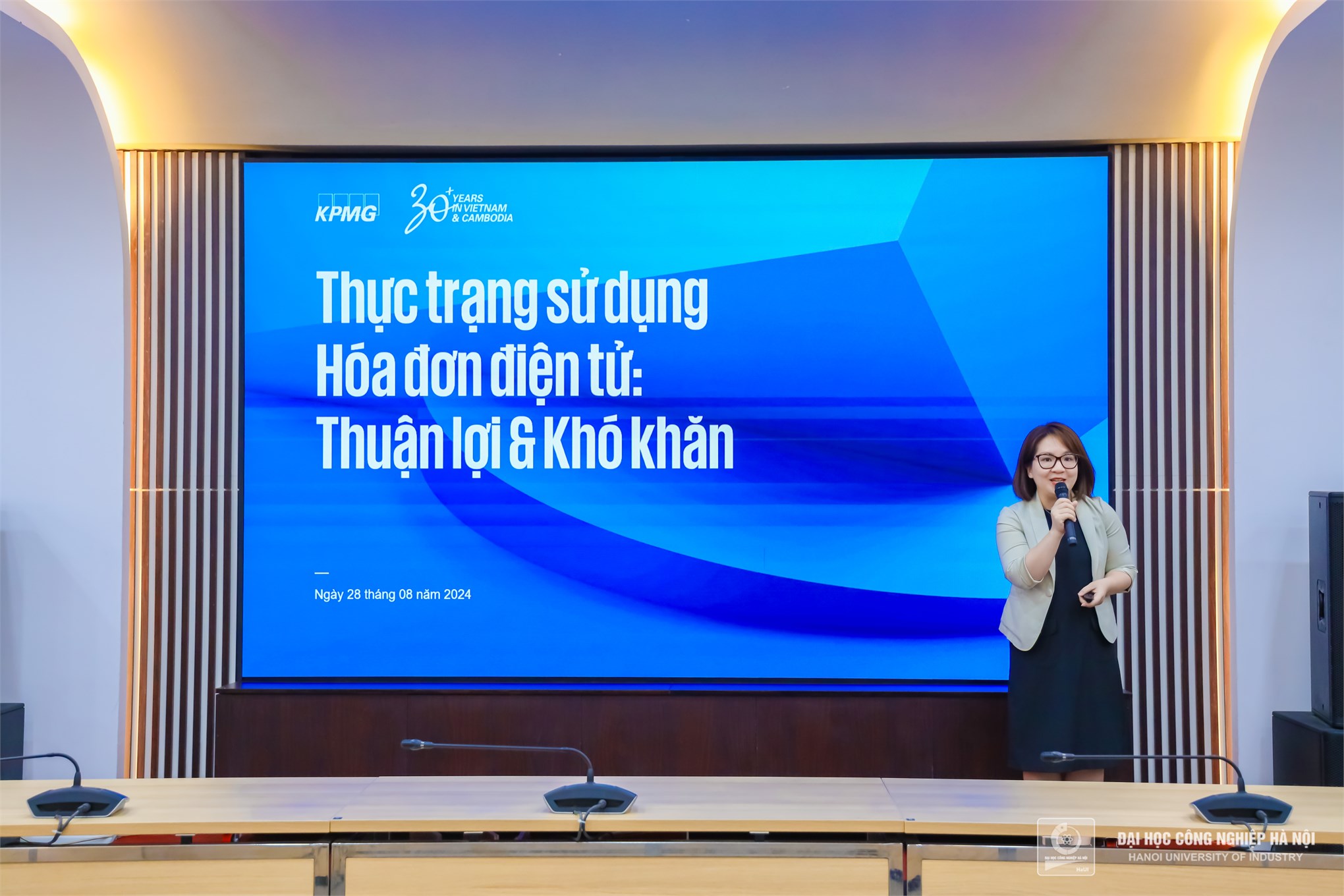
Ms. Pho Thi My Hanh, Director of Tax Consulting Services, KPMG Vietnam provided an in-depth analysis of the current utilization of e-invoices: Opportunities and Challenges
Ms. Pho Thi My Hanh discussed the use of electronic invoices, highlighting the benefits of reducing costs and time compared to paper invoices, ease of management, report preparation, invoice issuance, and quick registration procedures for businesses. Furthermore, electronic invoices enable tax authorities to closely monitor revenue, manage, detect, and penalize tax fraud.
However, Ms. Hanh pointed out that there are still numerous issues with the implementation of electronic invoices, causing concern among businesses. For example, there is a lack of clear regulations on the timing of invoice issuance for specific cases, unclear guidelines on the types of invoices for export processing enterprises, the requirement for businesses to use two types of invoices when exporting goods (commercial invoices and electronic VAT/sales invoices), no regulation on issuing invoices for each occurrence for specific cases, and inconsistencies in the regulations on electronic documents. Additionally, there is no notification to buyers about invoice cancellation, adjustment, or replacement, and no regulation on issuing a single invoice to adjust or replace an already issued invoice for the same buyer.
 Assoc. Prof. Dr. Nguyen Thi Hong Nga, Headmaster of School of Economics, Hanoi University of Industry stated that the insights, discussions, and contributions from experts, scholars, and lecturers will serve as a foundation for the School to reference and update the tax management curriculum in alignment with the current digital economy landscape.
Assoc. Prof. Dr. Nguyen Thi Hong Nga, Headmaster of School of Economics, Hanoi University of Industry stated that the insights, discussions, and contributions from experts, scholars, and lecturers will serve as a foundation for the School to reference and update the tax management curriculum in alignment with the current digital economy landscape.

Mr. To Quoc Hung, Country Director of ACCA Vietnam noted that taxation is a significant component of the ACCA curriculum, accounting for 12% of the training program. Students will study and be examined on Vietnamese taxation as part of the ACCA qualification, based on the collaboration between ACCA and the Ministry of Finance.
In particular, in the digital economy, educational institutions need to focus on developing and enhancing the quality of the tax workforce. Currently, several programs at the School of Economics, Hanoi University of Industry, have integrated international professional certifications like ACCA. This serves as a foundation for the School of Economics, Hanoi University of Industry, to train high-quality human resources for the tax sector in Vietnam.

Delegates took group photos
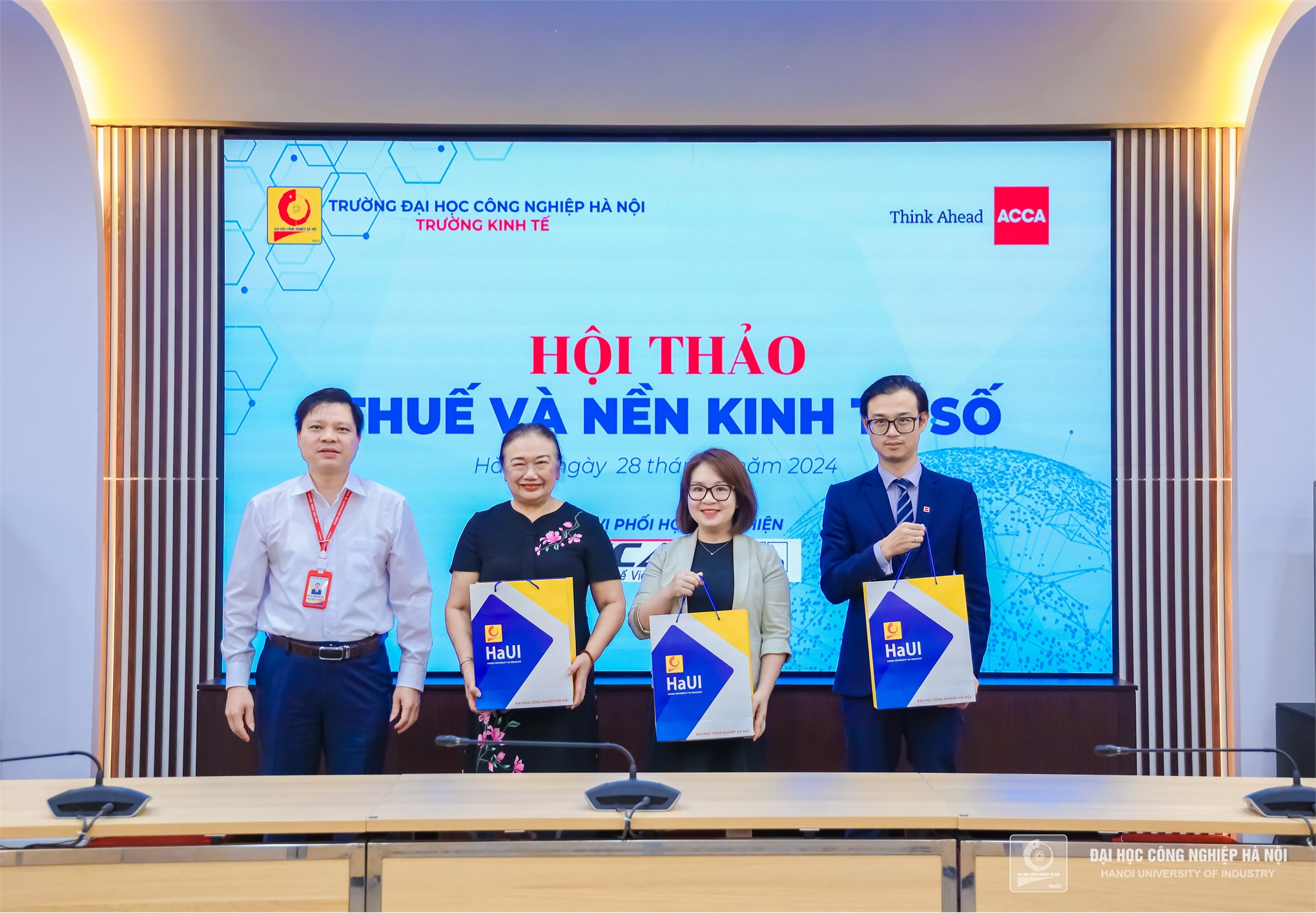
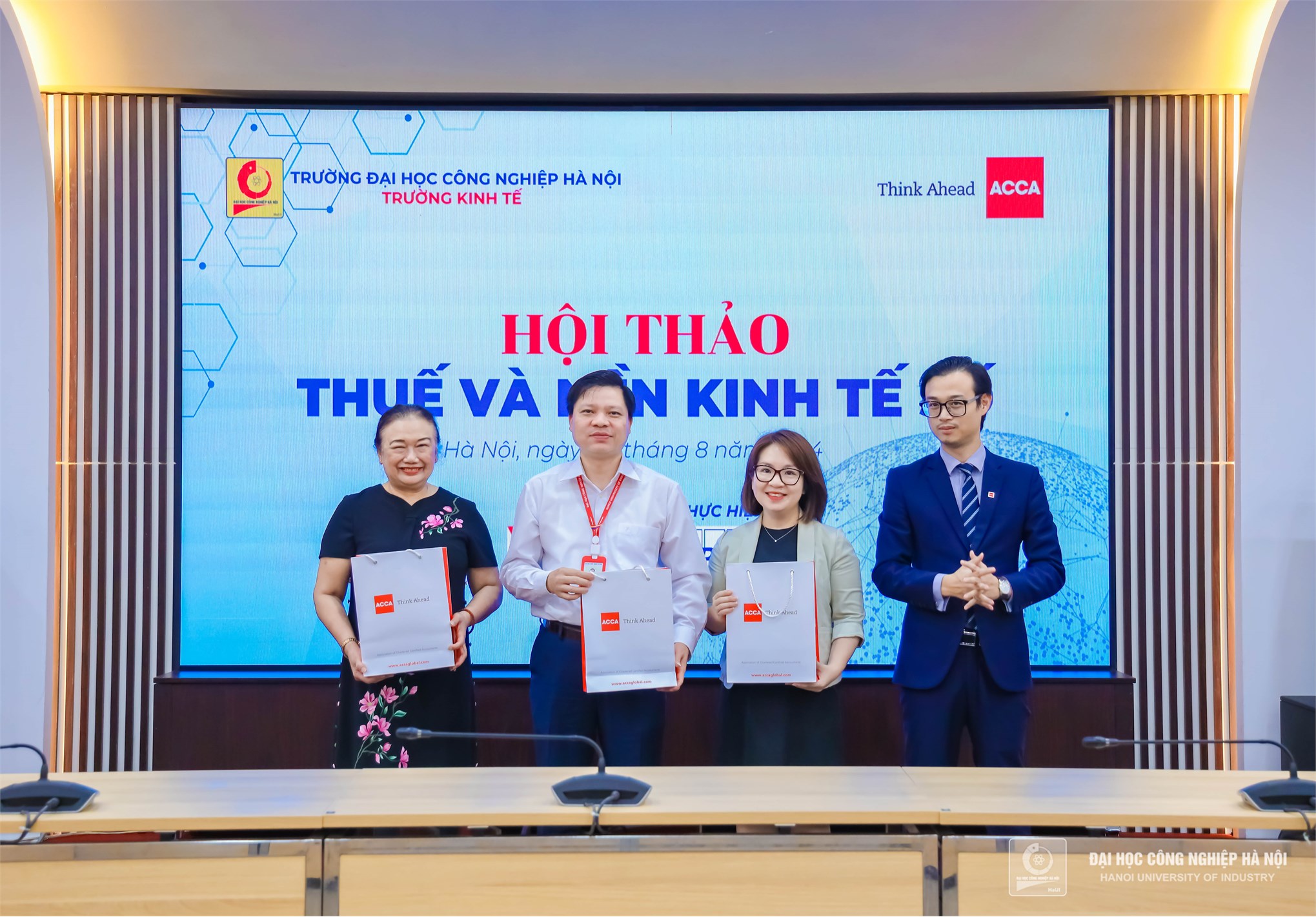



















-
Wednesday, 14:07 28/08/2024

